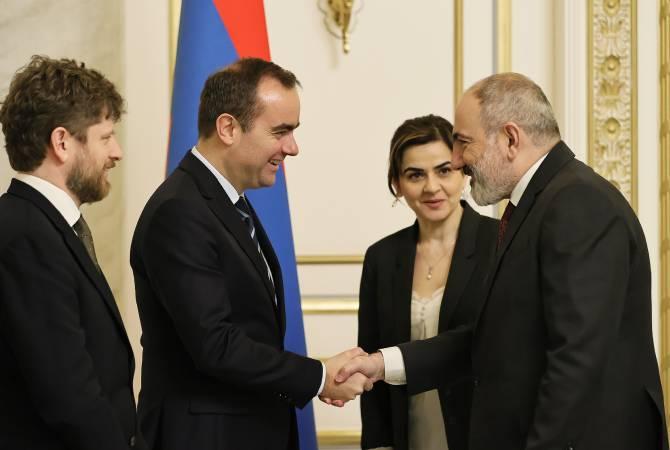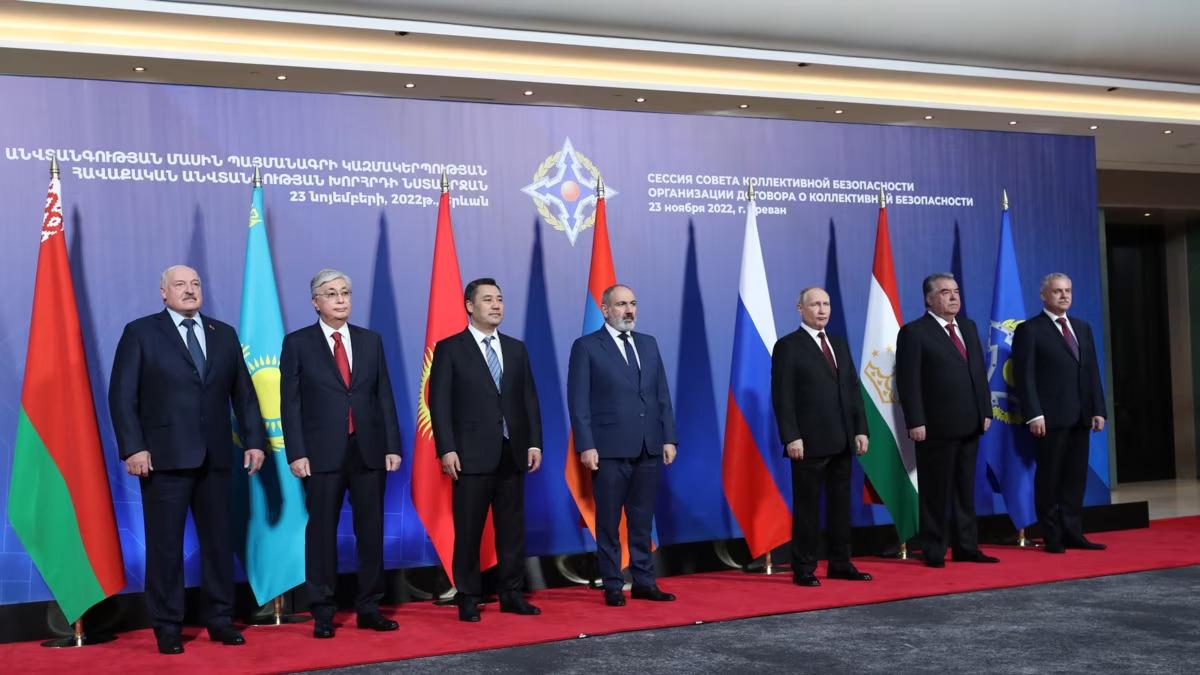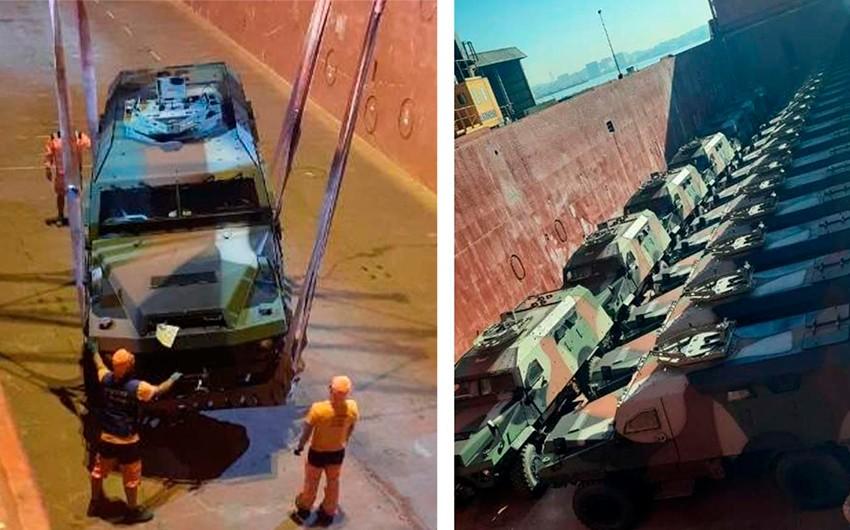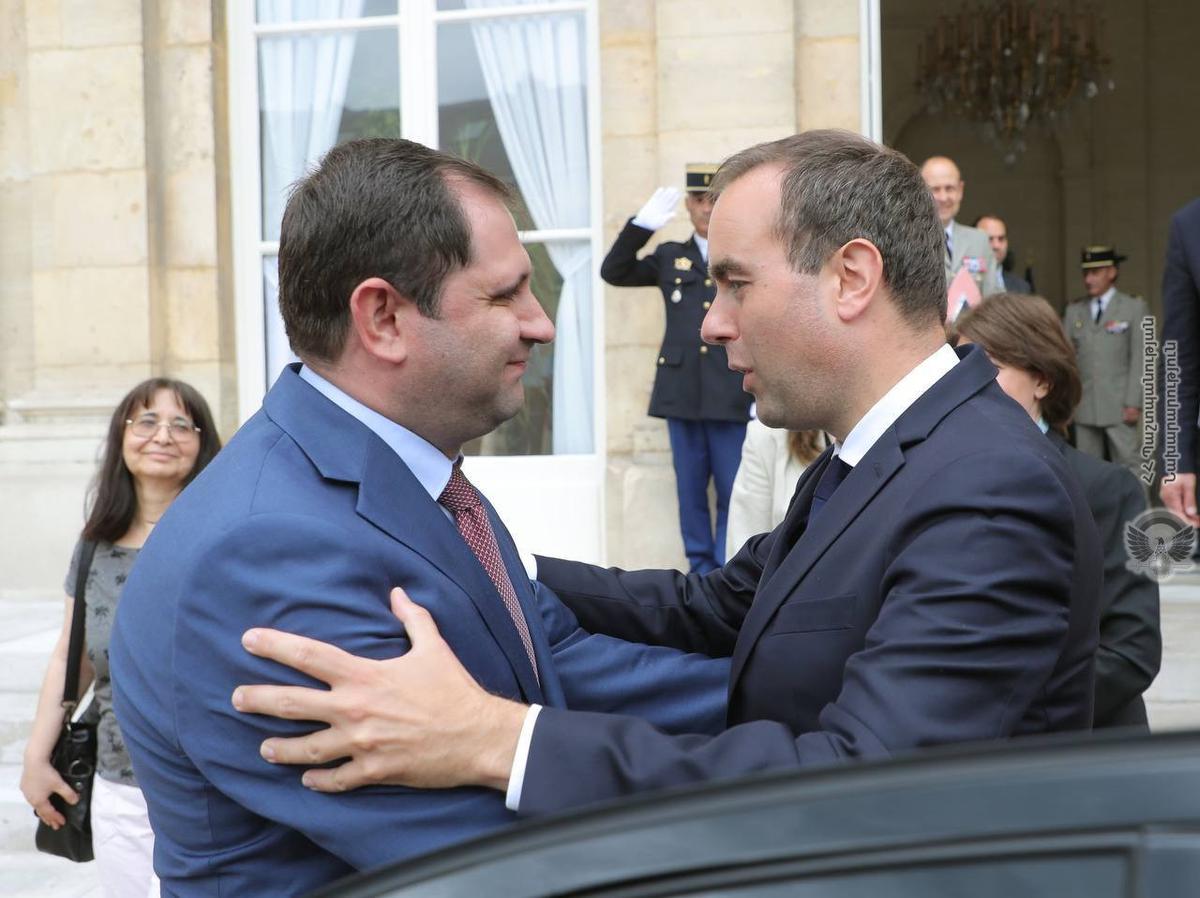Rearming Armenia to avenge Azerbaijan & challenge Russia's presence in the South Caucasus France's open ambition
Hot on the heels of the red-carpet treatment, Emmanuel Macron rolled out for Armenian Prime Minister Nikol Pashinyan in Paris, he dispatched his defence minister to Yerevan to renew his support to the aggressor state at close quarters to Azerbaijan and Russia amid inflated speculations about imminent threats to the quasi-state’s territorial integrity.
In light of escalating friction with its neighbour Azerbaijan, and a strained relationship with its long-term ally, Russia, France has clearly demonstrated to Armenia that it stands firmly in support. Armed Forces Minister Sébastien Lecornu’s inaugural visit to Yerevan and meetings with the Armenian prime minister, and his opposite side Suren Papikyan, symbolized Paris’ determination to supply Moscow’s backyard with weapons under the pretext of beefing up defence ties between the two nations.
With no intention to miss the opportunity, Lecornu also carried night vision goggles for Armenia on his plane, which in return, has agreed to procure assault rifles from the French firm, PGM. Additionally, talks regarding the acquisition of short-range Mistral missiles from the European contractor, MBDA, are progressing.

Alleging that their military cooperation is all in all 18 months, the Armenian minister underscored the substantial significance of the partnership for Armenia, adding that "we've achieved substantial progress, paving the way for strategic long-term planning in the forthcoming years".
Lecornu, for his turn, further emphasized that "our utmost priority lies in assisting Armenia in safeguarding its citizens... We are present here specifically because Armenia requires our support at this moment". The display of the enhanced alliance with France came very soon after Prime Minister Nikol Pashinyan announced on February 22 that Armenia had effectively put its membership in the Moscow-led Collective Security Treaty Organization (CSTO) military alliance on hold.
Armenia alleged betrayal by Moscow after Azerbaijan threw into the dustbin of history the French hypocritical mediation along with Russia and the US, regaining the occupied lands in and around Karabakh that lasted from 2020 to 2023 in several stages with the longest one being the 44-day Second Karabakh War.
As its alliance with Moscow crumbles, Armenia is on the lookout for new allies, and France, home to a considerable Armenian diaspora, stands out as a potential Western ally.
"Yerevan is seeking alliances with those who can genuinely offer protection," Lecornu subtly hinted, apparently alluding to Russia.
In his remarks on the visit to Yerevan by the French defence minister, Papikyan stated that "the arrival of the French minister just two years after we initiated our defence relationship signifies that it has rapidly evolved into a comprehensive and systemic partnership".
Earlier, Pashinyan visited Paris, where he had a meeting with French President Emmanuel Macron. Macron expressed his concern that "the risk of escalation is still a reality" following the February 12 border conflict.
Being an arms producer and exporter, France perceives this as a chance to advance its defence industry interests by selling arms to Armenia and economic advantages for defence firms and stimulating bilateral trade relations.
However, French military backing for Armenia is an outright interference in the stability and peace on the Azerbaijani border with Azerbaijan since Yerevan has not and with Western support will not abandon its territorial claims to Azerbaijan and Türkiye, and no doubt, will wait and cherish hopes for the right time to dare to take revenge.
Is Armenia quitting CSTO?
Armenia has put on hold its involvement in the Collective Security Treaty Organisation (CSTO), a military alliance spearheaded by Moscow, according to Prime Minister Nikol Pashinyan. He conveyed his disenchantment over the organization's failure to uphold its security commitments towards Armenia, notably in 2021 and 2022, leading to the suspension of Armenia's active involvement in the CSTO.
In addressing the Russian military base in Armenia, Pashinyan clarified that it does not exist as a result of their CSTO membership and that there was no cause for Yerevan to discuss the matter. He further revealed that Russia had previously encouraged Armenians to topple their government a few months ago, with the anti-Pashinyan propaganda from Russia showing no signs of abating.

The once cordial relationship between Yerevan and Moscow has been strained following the lack of intervention from Russia and the CSTO when Azerbaijan de-occupied its own lands from Armenia’s occupation. The relationship took a further hit in 2023 when Armenia declined to host a CSTO military exercise and abstained from participating in several other drills. High-ranking Armenian officials also missed multiple CSTO meetings.
Untested French weapons in Armenia
Azerbaijan remains vigilant as France delivers military equipment to Armenia amid rumours of missiles.
Armenia's procurement of armaments is not intended for hostility towards any nation, asserts the Armenian defence minister. The primary purpose of Armenia's weaponry acquisition is not to instigate aggression against any state, defence Minister Suren Papikyan affirmed on February 23. He emphasized that Armenia is committed to enhancing and modernizing its military capabilities.
Minister Suren Papikyan made this statement during a joint press conference alongside French Armed Forces Minister Sebastien Lecornu. He insisted that these needs are to be fulfilled independently, though the assistance of allied nations would be beneficial.

Papikyan further clarified that Armenia's procurement of weapons and ammunition is solely for the preservation of its territorial integrity and sovereignty. He stressed that none of the armaments bought by the country were intended for offensive use against any other nation.
Whilst acknowledging the potential for threats, amplified by existing rhetoric, Papikyan asserted that it is Armenia's responsibility to safeguard its territorial integrity and sovereignty. He assured that despite the impending peace treaty's future security implications, the Armenian armed forces will persist in acquiring defensive weaponry and ammunition.
France seeks to solidify its foothold in the South Caucasus
France persistently seeks to solidify its foothold in the South Caucasus through its strategic Armenian ally. This is often demonstrated through public gestures of encouragement, emphatic assurances of unwavering support for Armenia, and promises of providing defensive weaponry.

However, the recent arrival of Armenian Prime Minister Nikol Pashinyan in Paris was marked by a highly publicized and rather unsavoury controversy. Armen Grigoryan, Secretary of the Security Council, and a key advocate for westernization within Pashinyan's cadre, publicly accused Moscow of instigating a recent incident along the hypothetical border with Azerbaijan. In essence, the security supremo alleged that the EU mission was denied access to the area, with Russia being the only entity granted permission to operate there. Despite their presence, Russia was unable to thwart the incident. This implies, based on Armen Grigoryan's reasoning, that Armenia deploys unregulated Yerkrapah terrorists to the border.
These terrorists then proceeded to attack the Azerbaijani post, provoking a counterattack from Azerbaijan. Yet, somehow, Russia was expected to have "averted the incident," though it is unclear how or at what point. Markus Ritter, the chief of EUMA, later commented that their mission has been granted access to all of Armenia, except Nerkin Hand. This region falls under the jurisdiction of the Russian FSB. This revelation only served to compound the embarrassment.
Initially, it was an open secret in the South Caucasus that the boundary between Iran and Armenia was patrolled by Russian border guards, who had established a border control system. Furthermore, diplomats from European nations stationed in Armenia should have been aware of this scenario even during the planning phase of the European mission.
Regardless of whether the European diplomats in Armenia were solely engaged in enjoying brandy and examining khachkars, the recognition of a border zone managed by the Russian Federation's FSB border guards became apparent following the deployment of the European monitoring mission.
Conclusion
The escalating tensions between Azerbaijan and Armenia, exacerbated by France's pledge to supply new weapons and missiles to Armenia, coupled with Azerbaijan's vow to destroy any perceived threats to its national interests and territorial integrity, underscore the volatile situation in the South Caucasus.
In this volatile environment, it is crucial for all parties involved to honour their pledges, resulting from the outcome of the 2020 Second Karabakh War, exercise restraint, and prioritize diplomatic solutions to prevent further escalation and potential conflict. Direct dialogue and mediation efforts, possibly facilitated by neutral third-party actors or international organizations, could help de-escalate tensions and address the underlying grievances between Azerbaijan and Armenia.
Furthermore, regional and international stakeholders must reaffirm their commitment to respecting the sovereignty, territorial integrity, and peaceful resolution of conflicts in line with international law and relevant UN Security Council resolutions.
Ultimately, sustainable peace in the South Caucasus can only be achieved through comprehensive negotiations, mutual respect for territorial integrity, and implementing confidence-building measures to foster trust and stability in the region.








